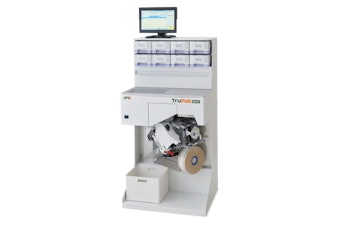Ron Moser of Wal-Mart said, "Right now, four suppliers are tagging pharmaceuticals at the package level, on over 20 SKUs. They are all using UHF tags. We have plans to expand item-level tagging beyond those 20 SKUs." Moser didn't say so, but others referred to the Wal-Mart participants as manufacturers of controlled substances.
The FDA, of course, is more concerned with the Pfizers of the world. Pfizer was represented at the workshop by Tom McPhillips, vice president, U.S. trade group. In an opening statement, he said, "It would be possible to implement RFID tagging for higher-risk products in three to five years. It would take several years beyond that before all drugs could get tags."
--By Stephen Barlas, Contributing Editor


















